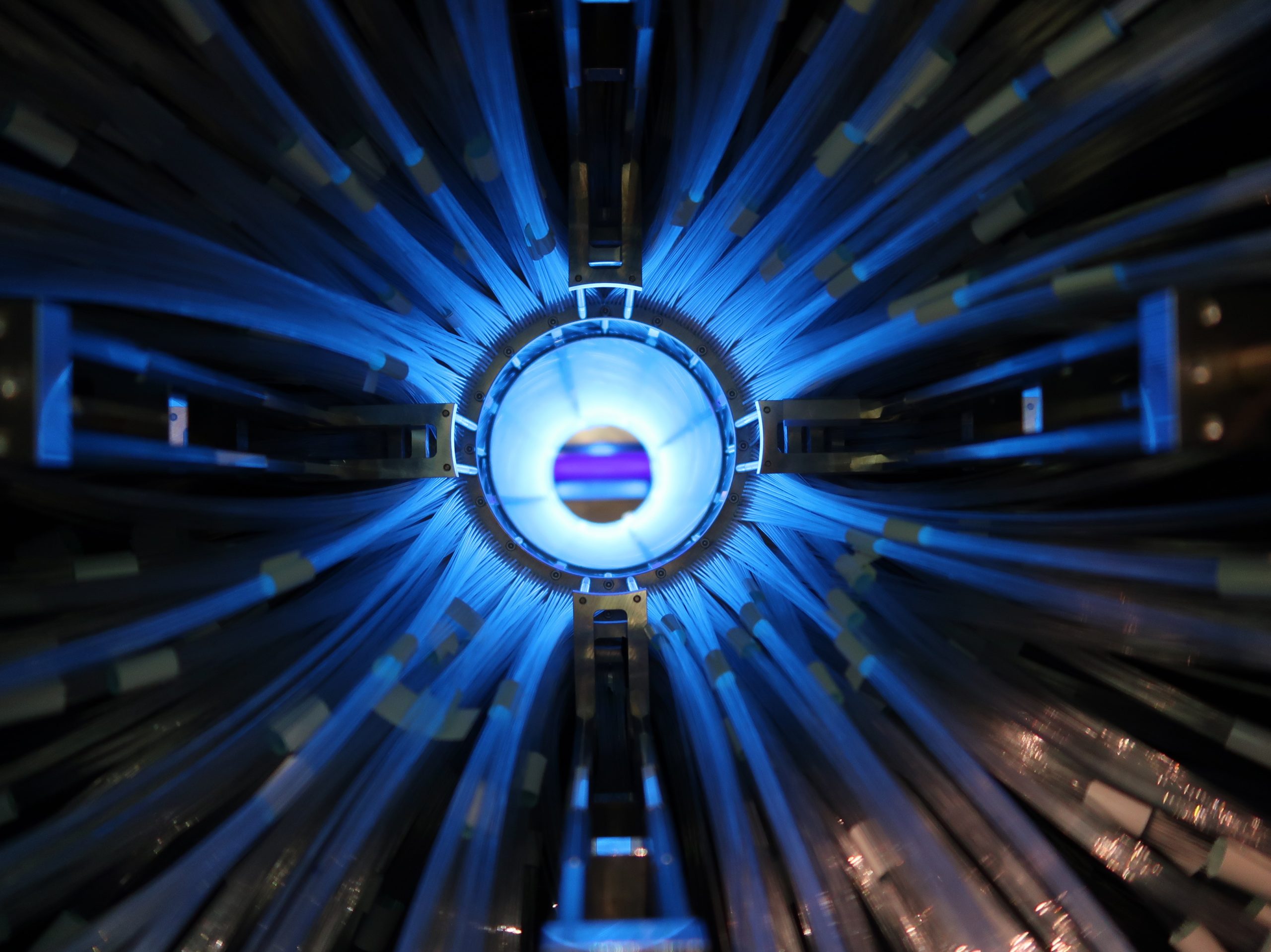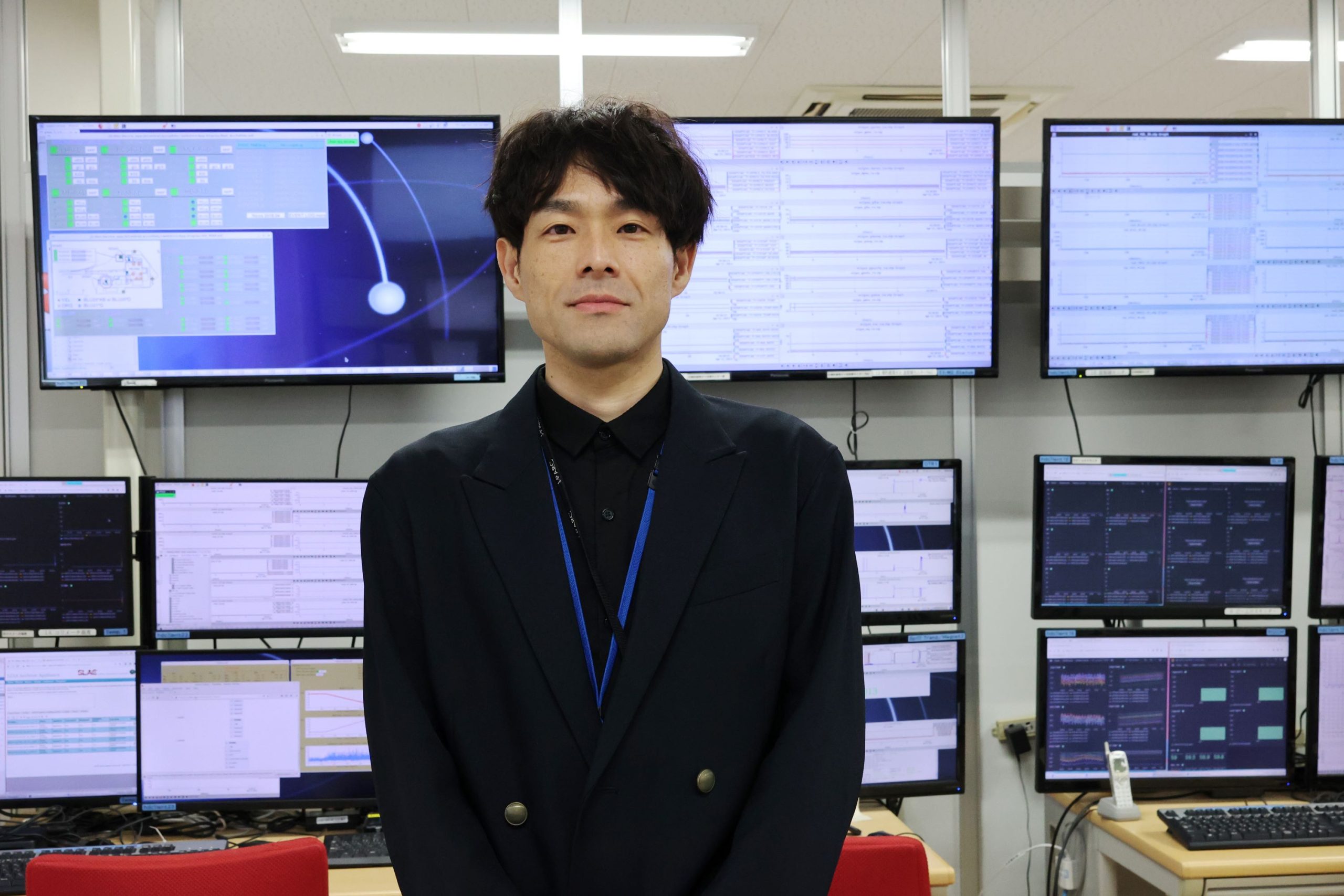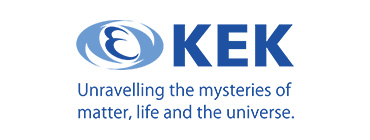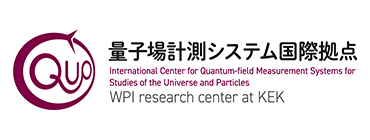- Topics
[Welcome to the IPNS] Interview with Dr. Yusuke Uchiyama of the Hadron Group
April 22nd, 2024
In October 2023, Dr. Yusuke Uchiyama joined the Hadron group at IPNS as assistant professor.
We interviewed him about what sparked his interest in the world of particle physics, the research he has conducted, and how he refreshes his mind when faced with challenges in his work.
■What sparked your interest in particle physics?
When I was a high school student, I listened to a lecture by Professor Saburo Honma, a physicist who also graduated from my high school.
■What kind of research were you involved in before coming to KEK?
I conducted experiments at the Paul Scherrer Institute in Switzerland, specifically the MEG experiment and its successor, MEG II. These experiments aimed to explore the phenomenon of muon decaying into electrons. Since they are not large-scale experiments, I experienced a series of research activities, including designing, developing, and operating experimental equipment, as well as analyzing the data to produce world-leading physics results; that was a valuable experience to me. It was a span of 10 years, from one experiment to the next, and I found myself living in Switzerland for 17 years!
■What kind of research do you hope to pursue at KEK?
I’d like to accelerate the start of the COMET experiment and continue to delve into the exploration of charged lepton flavor violation. The phenomena being sought in experiments like MEG and COMET are those that the Standard Model of particle physics cannot explain and have yet to be discovered. On the other hand, if there are physics beyond the Standard Model, such as supersymmetric grand unified theories, it is predicted that such phenomena may occur with an extremely small probability. To explore these phenomena, we need to produce a large number of muons, using a high-intensity proton beam at J-PARC. Considering that the MEG experiment did not observe these phenomena, I suppose that the COMET experiment needs a sensitivity of more than ten thousand times higher than previous experiments to detect them. Therefore, the experiment needs to be upgraded in a phased manner and it will be a long way to go.
■Can you share your method of refreshing your mind when facing difficulties in research and work?
When I’m stuck, I often switch to another research topic, create clear and visually appealing plots or figures for papers or presentations, or do office tasks. Additionally, I try to get as much sleep as time allows. However, I sometimes find myself thinking about research, even in my dreams.
——————————–
We look forward to your future activities at the IPNS!








